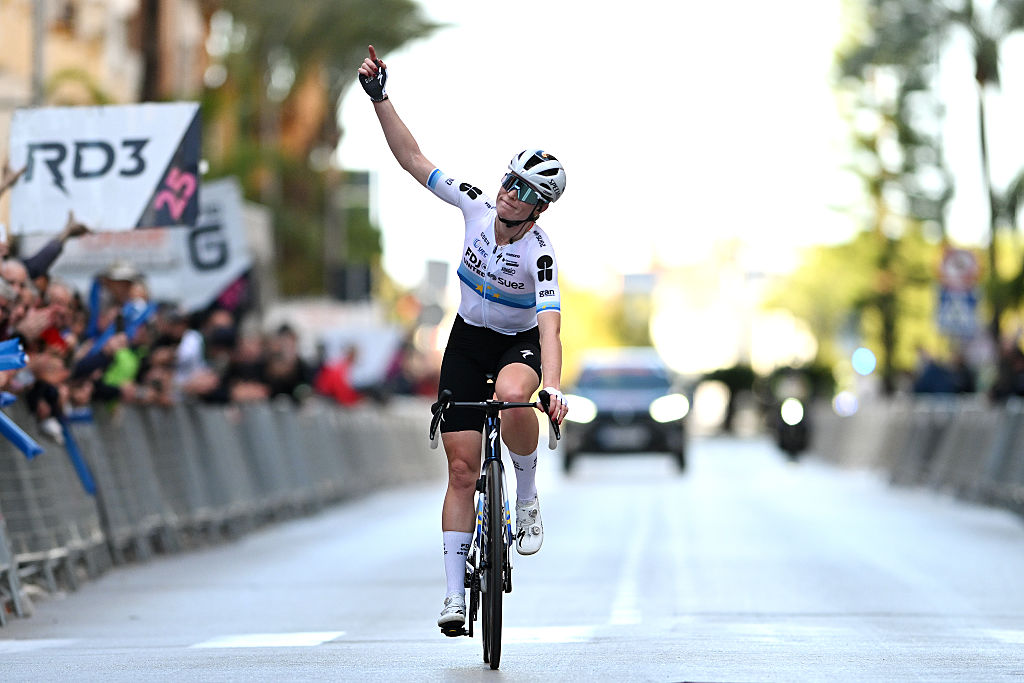Tour de Suisse 2021 – Preview
Van der Poel, Alaphilippe, Carapaz among those warming up for Tour de France
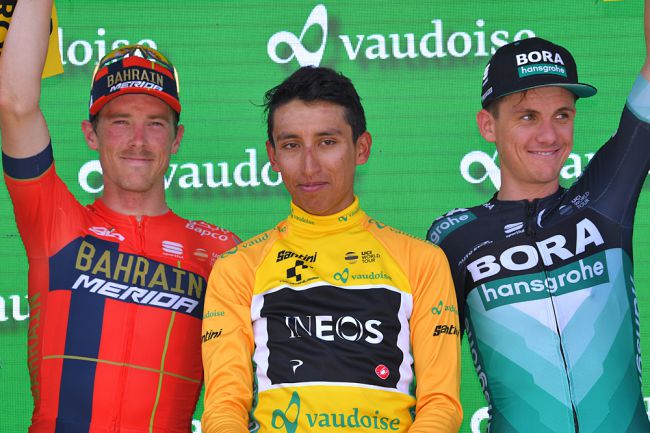
The latest race content, interviews, features, reviews and expert buying guides, direct to your inbox!
You are now subscribed
Your newsletter sign-up was successful
As the Critérium du Dauphiné draws to a close this weekend, a different batch of Tour de France hopefuls will be sharpening their form and searching for success at one of the oldest and most prestigious week-long races on the calendar.
The Tour de Suisse, first raced in 1933, did not take place in 2020 due to the coronavirus pandemic, but this year the race is back, with the same route in place that would have been covered 12 months ago.
That means the race, which begins on Saturday June 6, is reduced by a day to eight stages, making it the shortest edition since the 1960s. Still, with flat, hilly, and mountainous terrain, plus two time trials – one of which goes up and down a mountain – it's a race with something for everyone.
Mathieu van der Poel (Alpecin-Fenix) and Julian Alaphilippe (Deceuninck-QuickStep) are arguably the biggest star names on the start list.
The former is swapping his mountain bike for his road bike as he prepares for his and his team's Tour de France debut, while the current world champion begins the next phase of his season after his last outing came when he finished runner-up at Liège-Bastogne-Liège in April.
Both will find terrain to their liking in the first half of the race, with the opening time trial followed by three stages that will please the puncheurs and could all culminate in selective group finishes. Max Schachmann (Bora-Hansgrohe) and Benoît Cosnefroy (AG2R Citroën) are also riders who'll sense opportunities.
When the terrain becomes more overtly mountainous in the second half of the race, Richard Carapaz (Ineos Grenadiers) will be the rider everyone looks to.
The latest race content, interviews, features, reviews and expert buying guides, direct to your inbox!
The 2019 Giro d'Italia champion has been estranged from the rest of the British team's Tour de France squad, most of whom are at the Dauphiné after a training camp in Tenerife. Carapaz, meanwhile, has been training back in Ecuador and this will be a test of his form and potentially of Ineos' hierarchy going into the Tour, with Geraint Thomas and Tao Geoghegan Hart currently at the Dauphiné.
Ineos have yet to confirm their full team, but Tom Pidcock will not race after fracturing his collarbone in training.
Tom Dumoulin (Jumbo-Visma) makes his comeback to racing after stepping away from the sport at the start of the year. The Dutchman, who won the Giro d'Italia in 2017, is eyeing the Olympic Games in Tokyo in late July and Suisse will give an indication of how much he has lost during his time away and how much work he needs to do.
Other possible contenders for the overall title include Jakob Fuglsang (Astana-Premier Tech), Marc Soler (Movistar), Esteban Chaves (Team BikeExchange), Tiesj Benoot (Team DSM), Sam Oomen (Jumbo-Visma), Domenico Pozzovivo (Qhubeka Assos), and Wout Poels (Bahrain Victorious).
An interesting name on the start list – which is still provisional at this stage – is Hugh Carthy (EF Education-Nippo), who just finished in the top 10 at the Giro d'Italia. In 2019 the Briton capitalized on his post-Giro form to take what was seen as a breakthrough stage win on the queen stage of that year's Tour de Suisse.
As ever, there's a strong Swiss contingent, with Stefan Küng (Groupama-FDJ) and Stefan Bissegger (EF Education-Nippo) up there with Dennis as favourites for the opening time trial, while Marc Hirschi (UAE Team Emirates) and Gino Mäder (Bahrain Victorious) are the other big names who'll be cheered on by home crowds.
Switzerland will also have a national squad in a 23-team field that includes all 19 WorldTour teams, plus automatic invitees Alpecin-Fenix and two other wildcard ProTeams in Rally Cycling and Total Direct Energie.
The route
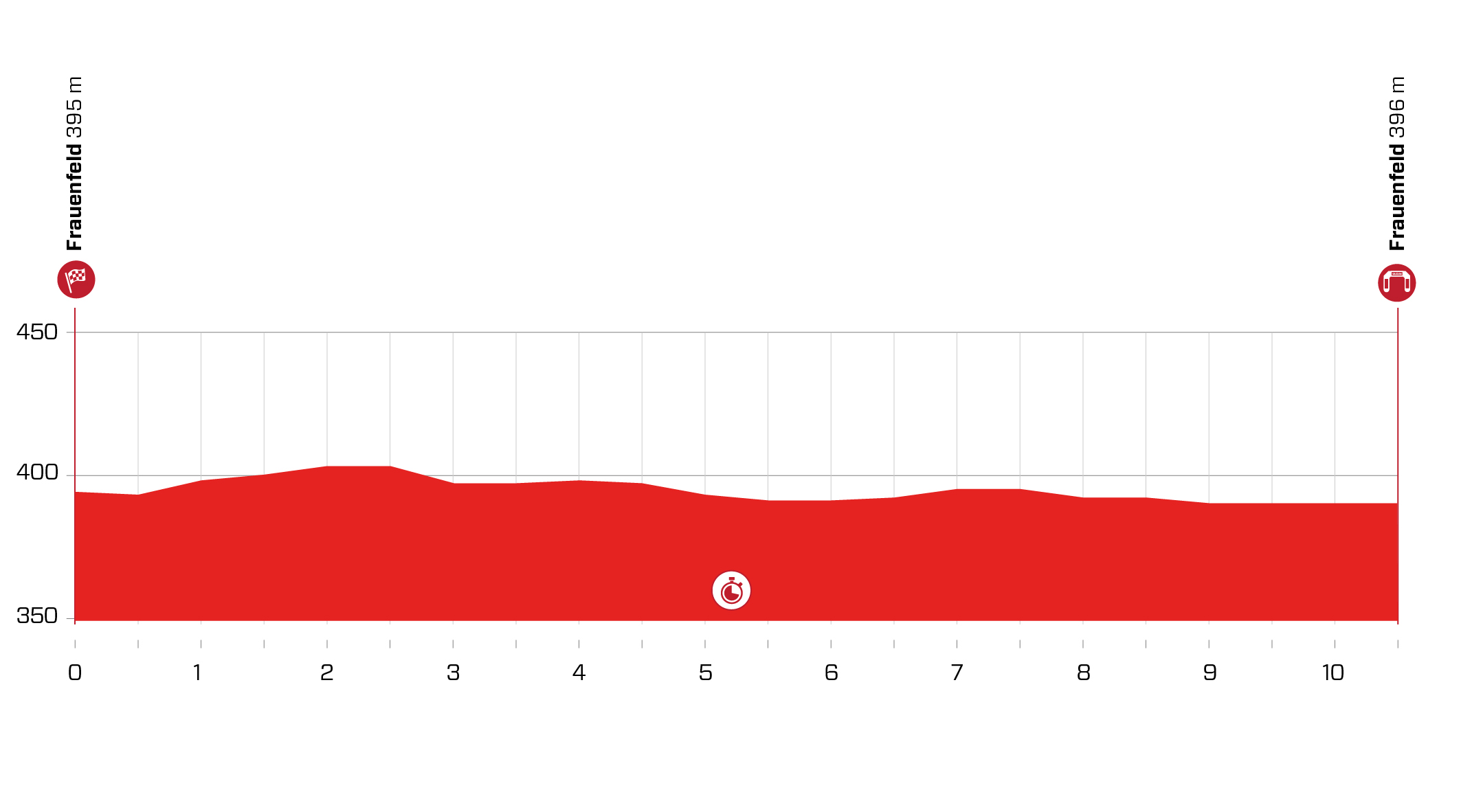
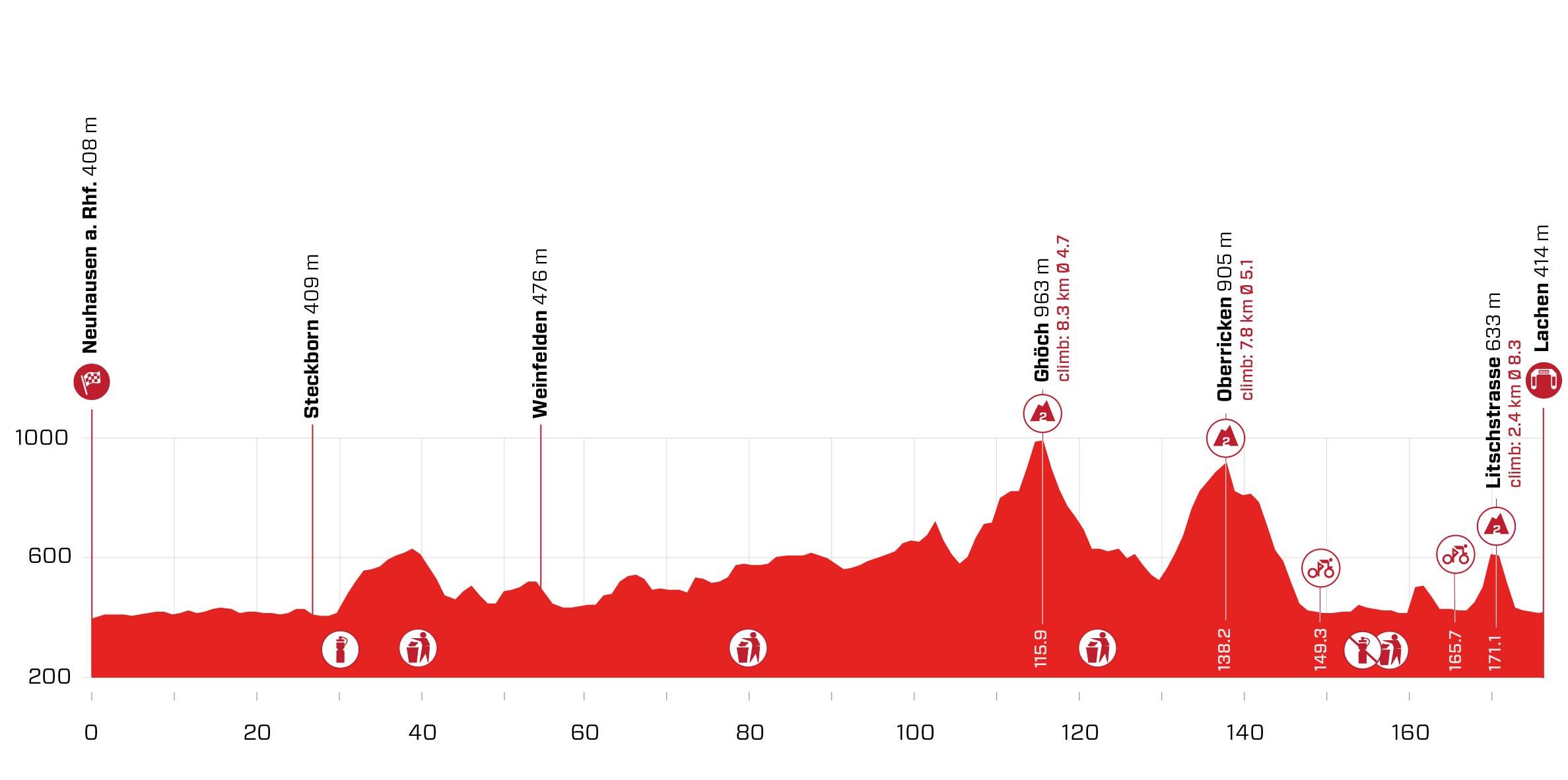
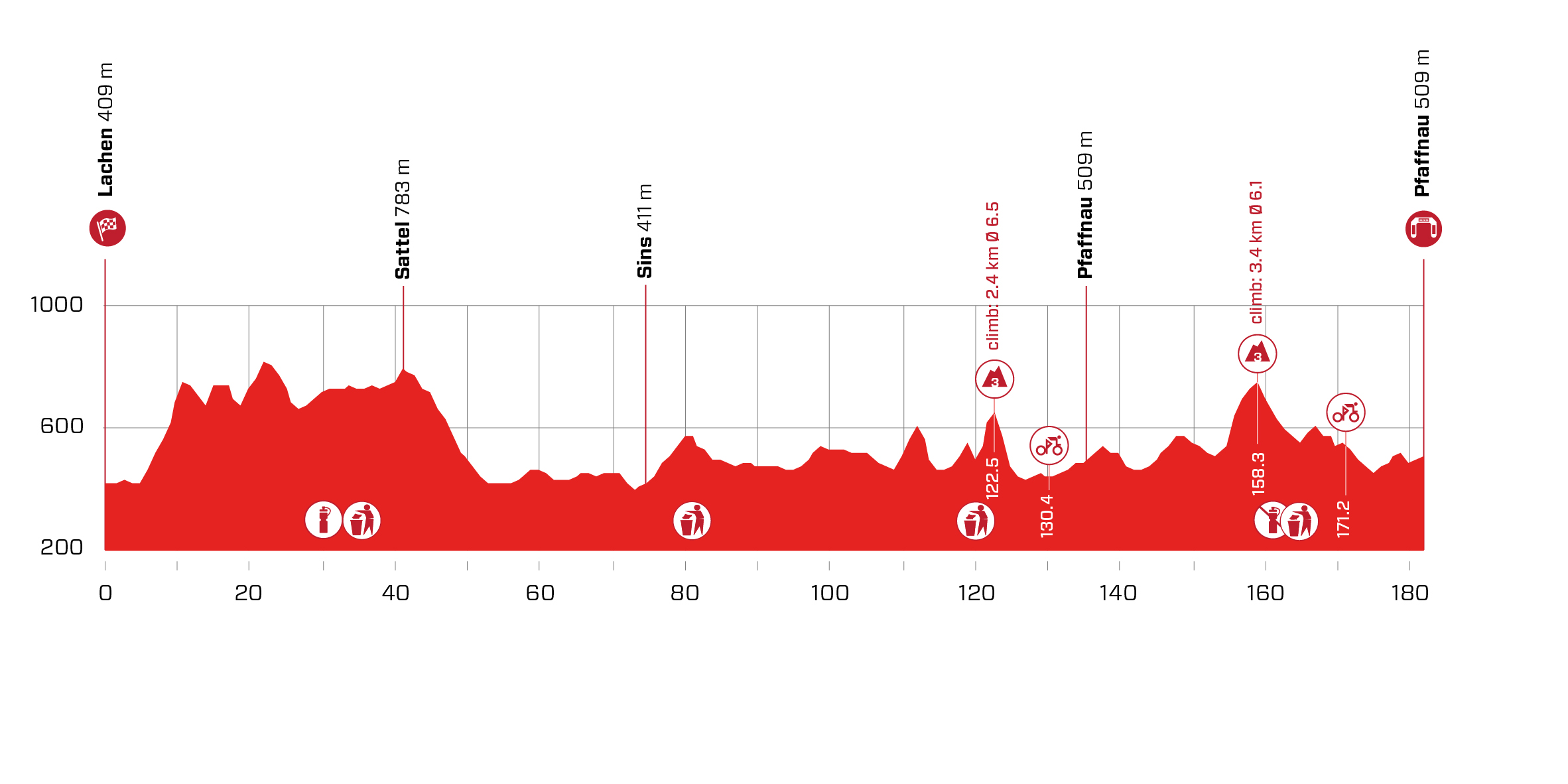
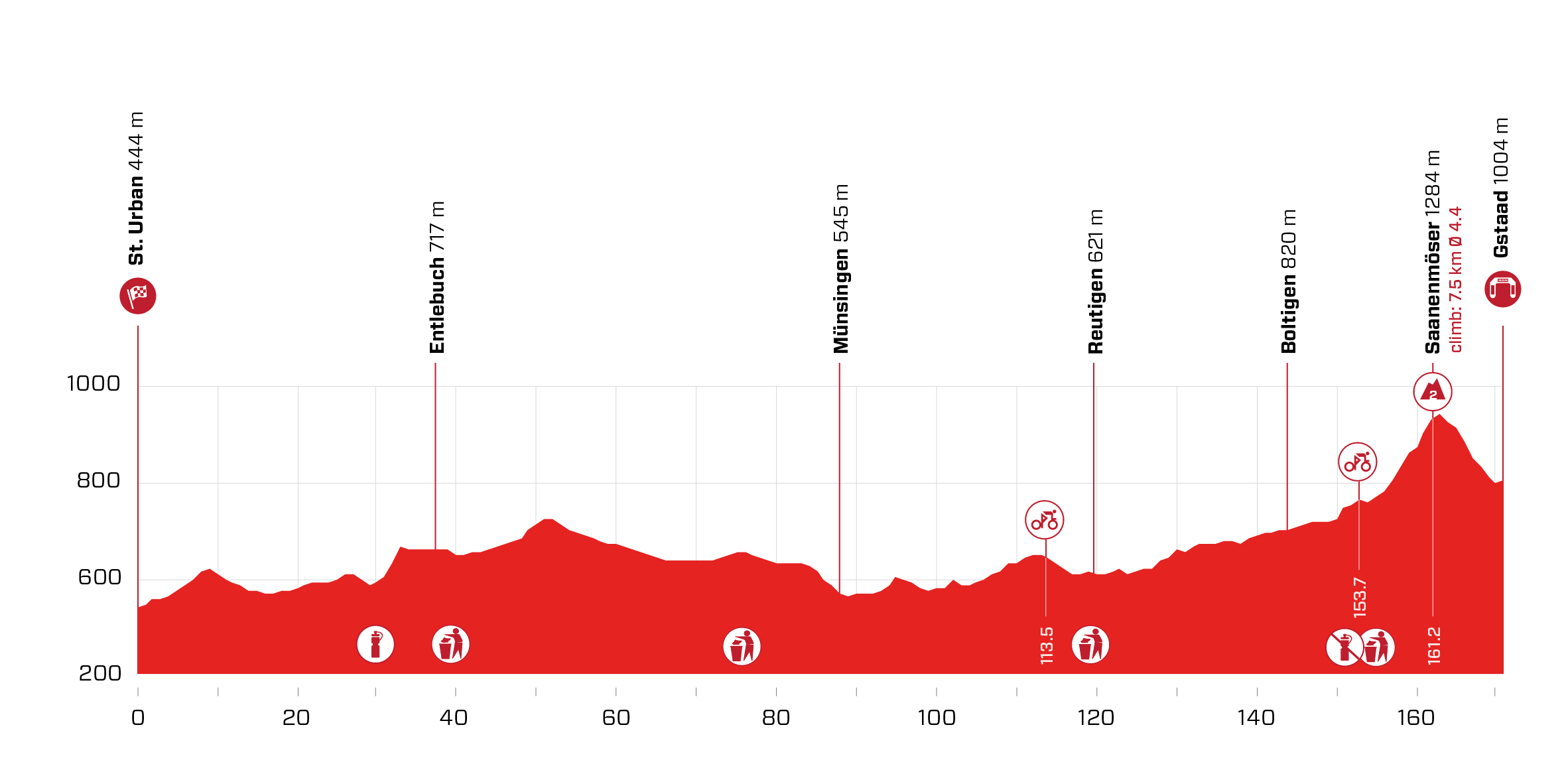
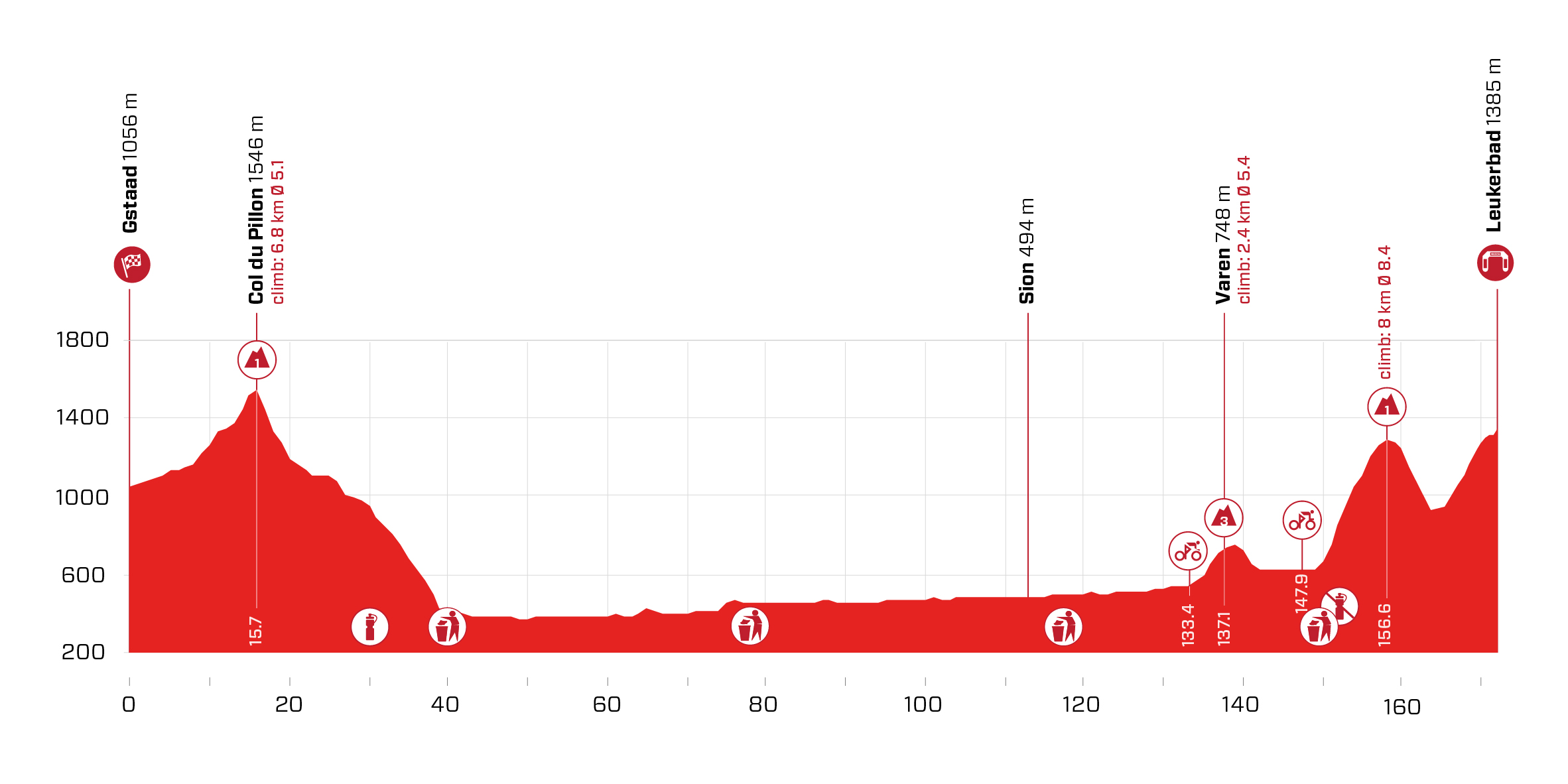
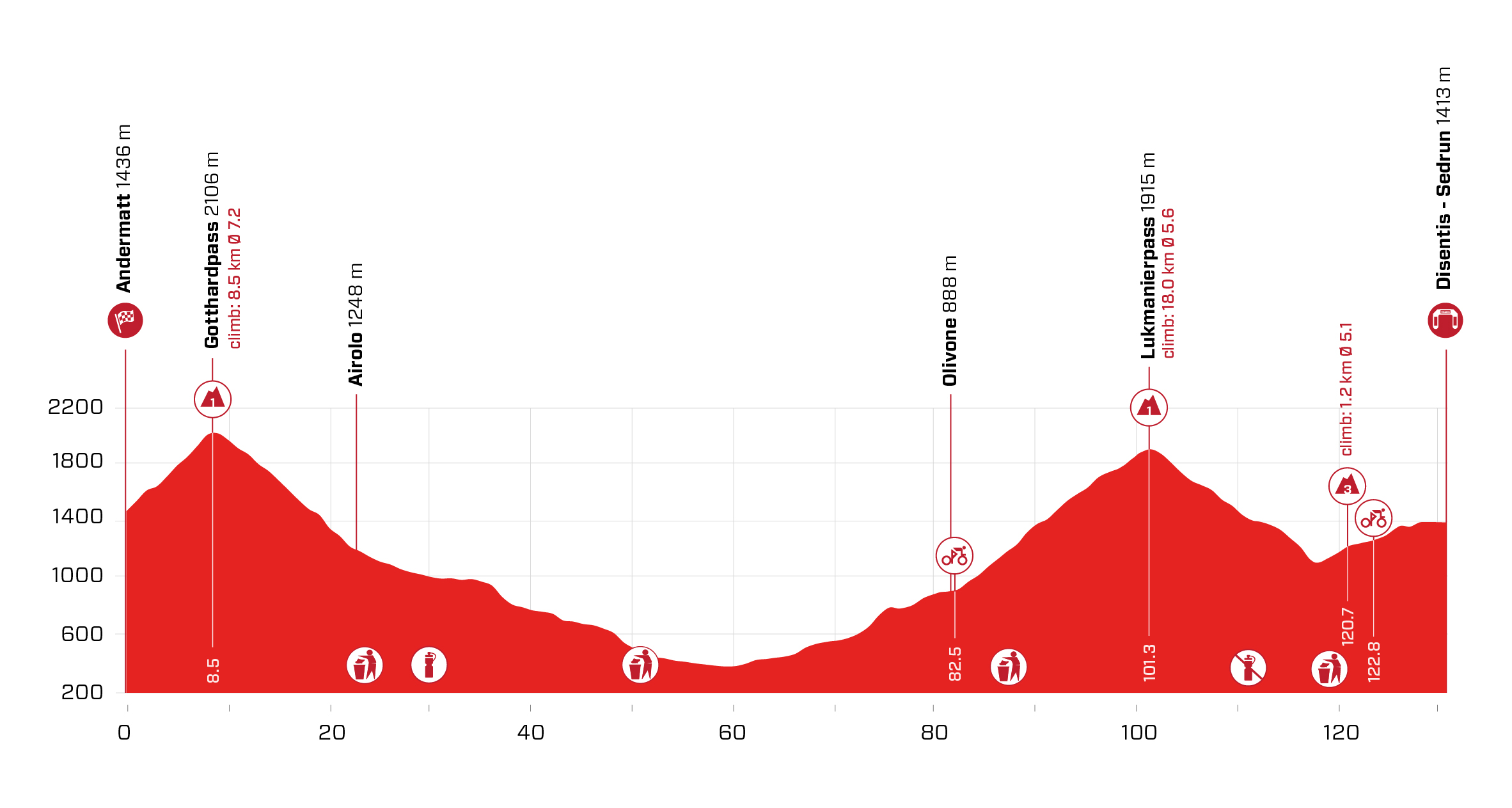
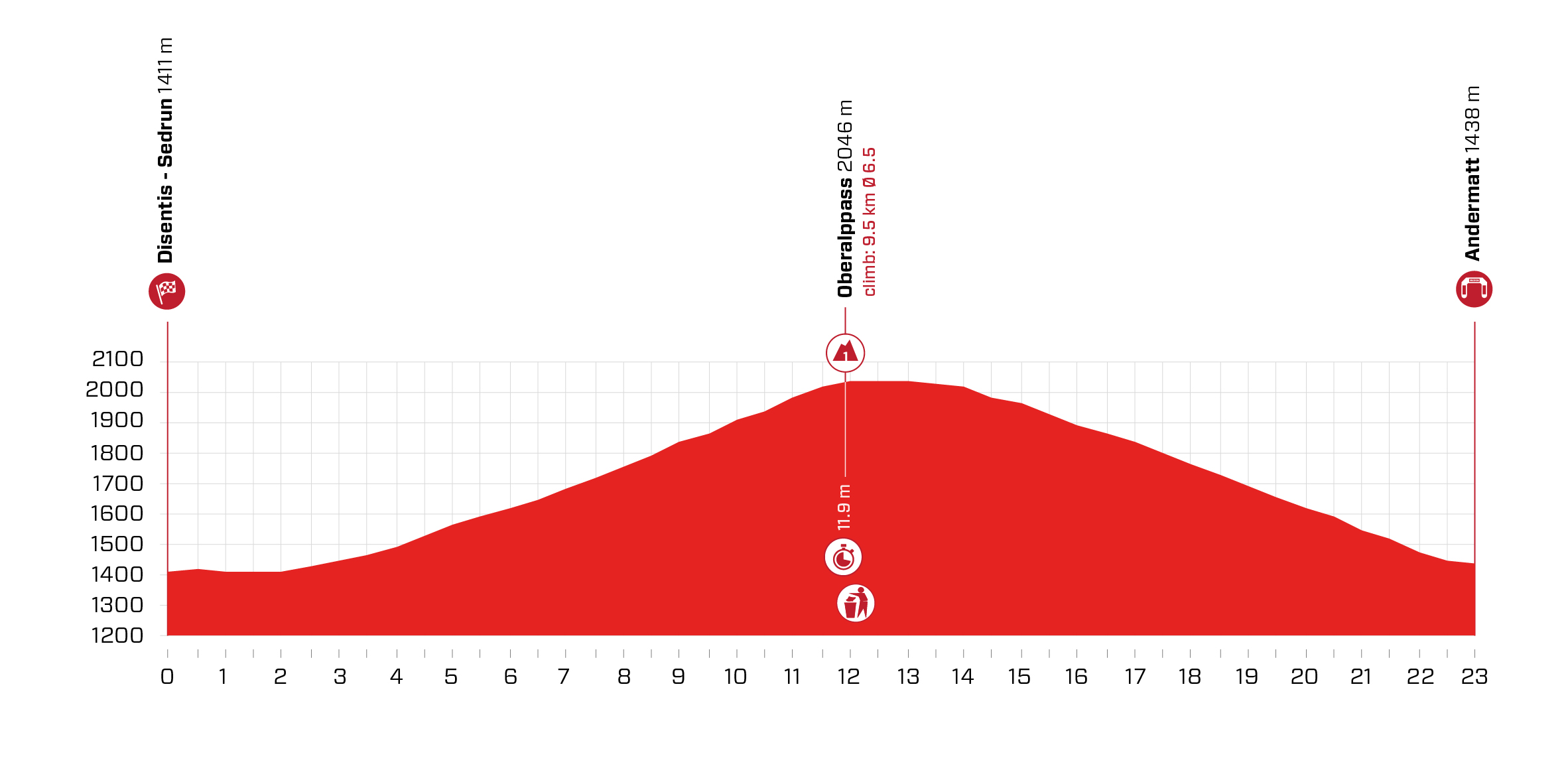
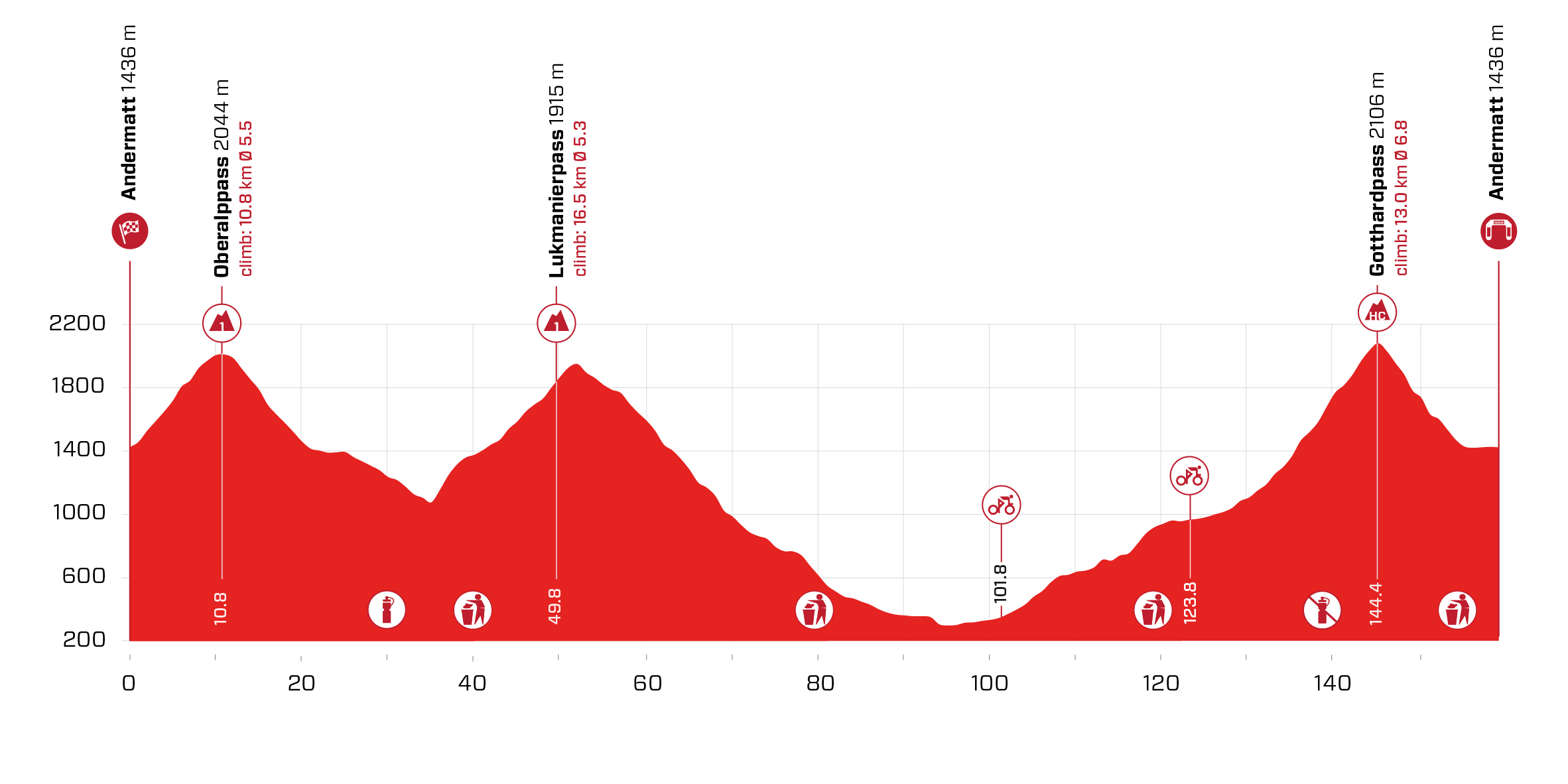
The 84th edition of the Tour de Suisse kicks off on Sunday with a short individual time trial in Frauenfeld. The course is 10.9km in length, and is largely flat with some technical early corners in town before the route opens out with some longer straights in the second half.
Stage 2 starts in Neuhausen am Rheinfall by the Rhine waterfalls, setting off for a 183km route that grows increasingly hilly in its second half and packs a later punch. The riders will tackle the second-category climbs of Ghöch – 8.3km at 4.7 per cent – and Oberricken – 7.8km at 5.1 per cent – before the shorter but sharper Litschstrasse – 2.4km at 8.3 per cent – represents a late launchpad for attacks, topping out 10 downhill kilometres from home.
Stage 3 doesn't have quite so obvious a launchpad but does feature more undulating terrain, with barely a metre of flat on a 183km route that features no major climb but still 2500 metres of elevation gain. There are a pair of third-category climbs in the second half, plus a false flat finale, which should result in a sapping sprint from whatever size group arrives there.
Stage 4 is another that could well see a reduced bunch finish, with a 171km route that is all about the Saanenmöser climb in the finale. At 7.5km and an average gradient of 4.4 per cent – although the road rises gently long before that – it should weed out the weaker climbers but the more robust of the faster finishers will be able to get over it and contest the finish after the 9km descent into Gstaad. For reference, the same finish was used in 2018, when Chris Juul-Jensen survived from the breakaway to win solo ahead of a bunch that contained 60 riders.
Stage 5 sees the terrain become more seriously hilly, acting as a bridge to the high mountains. Despite 100km of near pan-flat terrain in the middle of the 172km route, there's a sting in the head and tail. The first-category Col du Pillon – 6.8km at 5.1 per cent – climbs from the gun and is a rude awakening, although the real action will come late on, with the much sterner test of the all-new hairpinned climb up to Bratsch – 8km at 8.4 per cent – followed by a short descent and another 7km climb to the finish in Leukerbad.
Stage 6 is a more overtly Alpine affair, although it has had to be toned down due to snow levels on the mountain-tops. The Nufenen Pass – the highest paved pass in Switzerland – has been deemed impassible, and therefore the 130km stage starts out with the north side of the Gotthard Pass – 8.5km at 7.2 per cent – before a long descent and stretch in the valley. Then comes the Lukmanier Pass – 18km at 5.6 per cent – before another descent and the more moderate incline to the finish at Sedrun.
Stage 7 sees the second individual time trial of the race, although this one will be much more evenly balanced between the rouleurs and climbers. The 23.2km route is essentially an ascent and descent of the Oberalp Pass. The way up measures 9.5km at 6.5 per cent, while the descent starts out straight and fast before dropping into Andermatt via a series of switchbacks.
The final stage has been billed as the 'queen stage' of the race, although that too has had to be re-routed due to snow. The route had planned to cover the Susten Pass but, with that being close, we have a 160km stage that starts and finishes in Andermatt and retraces the steps taken on the previous days.
The Oberalp Pass – this time from the opposite direction – is first up, and it's another climb from the gun, before a descent and then the Lukmanier Pass – 16.5km at 5.3 per cent. After a longer descent down into the valley, the final climb comes in the form of the Gotthard Pass, this time scaled from its more difficult south side – 13km at 6.8 per cent. The descent into Adermatt is followed by a flat final few kilometres to the line, where the winner of the 2021 Tour de Suisse will be crowned.
Patrick is a freelance sports writer and editor. He’s an NCTJ-accredited journalist with a bachelor’s degree in modern languages (French and Spanish). Patrick worked full-time at Cyclingnews for eight years between 2015 and 2023, latterly as Deputy Editor.

